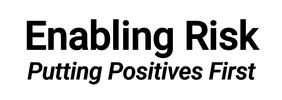Enabling Risk: Putting Positives First has been developed specifically for disability support workers. Enabling people to take risks is an integral part of disability support work. It is also important that practice leaders, frontline managers, senior managers are aware of the essentials of enabling risk outlined in this resource as they play a significant role in creating the right environment for support workers to put risk enablement into practice.
This resource is designed to provide an introduction to enabling risk. You will be introduced to the ways you can support people with cognitive disabilities, including people with intellectual disabilities and acquired brain injury, to make choices and be involved in activities that may involve some risk while minimising potential harm to themselves or others. There are many positives in supporting people with cognitive disabilities to participate in positive risk taking. Working from a risk enablement approach ensures that you provide empowering support that enables the people you support to live an engaged and meaningful life.
This resource is designed to provide an introduction to enabling risk. You will be introduced to the ways you can support people with cognitive disabilities, including people with intellectual disabilities and acquired brain injury, to make choices and be involved in activities that may involve some risk while minimising potential harm to themselves or others. There are many positives in supporting people with cognitive disabilities to participate in positive risk taking. Working from a risk enablement approach ensures that you provide empowering support that enables the people you support to live an engaged and meaningful life.
This video is an introduction to this resource.
This online learning resource is based on review of research about risk and from piloting these materials with disability support workers and people with intellectual disability.
What you will achieve by working through this resource
By the completion of this resource you will be able to:
- Define risk, its types of outcomes and factors that influence risk-taking behaviour
- Describe The 4 Essentials of Risk Enablement
- Describe The Risk Enablement Process for supporting people with cognitive disabilities
- Apply the process of risk enablement to different case scenarios
- Describe the benefits of working in a way that enables choices that involve risk
How to use this online resource
This is a fully online learning resource that you can complete at your own pace.
- It is comprised of 5 separate modules and you are encouraged to work through these in order because the learning material in one module will inform the next one.
- You can work through this resource on your own, or with the support of a facilitator or trainer in your workplace or training organisation.
- Each module includes short video talks introducing key concepts and videos of Australian examples of support workers putting risk enablement into practice.
- This resource includes a glossary. Words that you may not have come across before are underlined and linked to the glossary where a brief explanation is provided. For example, the word engagement. Just click the grey underlined word to see what it means. You can also see the full Glossary online, or download a pdf version in the Resources section.
- Each module includes activities that can be completed using the downloadable workbook in the Resources section.
- The workbook also has examples to help you complete the activities in each module. You can discuss your answers with colleagues in team meetings, or if you would like some further guidance you can send an enquiry using the online Contact Form.
- Suggested answers to the activities are provided in the Resources section.
- Each module will take you between 30 and 60 minutes to complete.
You can view this resource on your mobile phone, tablet, iPad or computer.
Acknowledgements
This online learning resource was led by Professor Christine Bigby and Professor Jacinta Douglas from the Living with Disability Research Centre at La Trobe University. This work was supported with funding from the New South Wales Department of Family and Community Services (NSW FACS). Material presented was developed with input from a wide range of stakeholders including staff from the Living with Disability Research Centre, and industry partners Unisson Disability (formerly Sunshine) and the New South Wales Council for Intellectual Disability (NSW CID). For a list of full credits click here.




